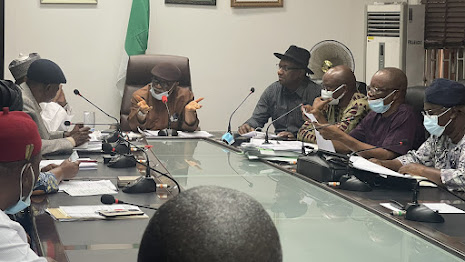By Hope Eghagha
One of the most traumatic experiences anybody can undergo is to be
violently abducted. Snatched from one’s regular, known serene world into a
world governed by drug-controlled youths is a life-altering experience. I have
been there. I know how it feels to be dispossessed of one’s liberty by
criminals. I know how relations feel in the uncertain days of the abduction. I
know how the kids feel that their father may never return. I know the emotions
that run through a wife.
I also know how it
feels to see one’s security aide killed with a single shot to the neck, blood
gushing out in angry ferocity, how his widow and two kids look up to you for
help. I know how it feels to be in captivity for 16 days without food, without
one’s routine medication. I know how it is to be blindfolded for 16 days. It is
not fun. It is not a party. It is deathly traumatic. It is deeply humiliating,
bewildering and depressing. It is frightening.
A typical kidnapper is
a violent person. There is verbal violence. There is of course physical
violence. At no provocation, the victim could be slapped, kicked or given a
blow to the head. The intention is to instill fear. So, fear is a constant when
in the custody of kidnappers. They brandish their weapons – guns, knives,
machetes. They use the gun-butt both on the victim and on the floor; at least
my captors did. I was harangued, insulted, beaten for no other reason than I
said that I didn’t have one hundred million naira to redeem myself. That though
I was a government official at the time, I knew the government would pay no
ransom.
In the den, the victim loses a sense of time. Blinded-folded, day and night
merge into one long experience. The weakness of the body at a particular time
may suggest it is late in the night. Same with the eerie quiet of the
environment, or the hooting of the night bird. Morning is heralded by birds
chirping. Late noon is dictated by the languor of the late afternoon early
evening sun. Time freezes, yet it moves. You try to hope, dare to hope really,
that you would ultimately get out alive. The kidnappers say ‘if you leave,” not
‘when you leave. Death is a permanent presence. It hangs in the air. Even when
not spoken, it is known as the ‘X’ factor. The uncertainty of it all is killing.
Their occasional acts of kindness, like leading you blindfolded to use the
urinary do not help. Or by the time you return from the urinary your bed has
been re-arranged. They remind the victim that the situation is abnormal. Yet
the victim shows gratefulness. A sinking man would clutch at a straw!







%20Strike.jpg)













